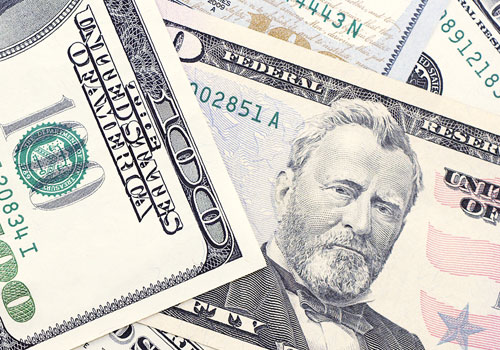Myanmar: Central Bank to penalise unlawful use of foreign currencies
The Central Bank of Myanmar will soon penalise people who are using dollars to pay for local business transactions, U Win Thaw, director general of the Foreign Exchange Management Department told The Myanmar Times.
The central bank has issued two directives – in May 2015 and in the late 2016 – that all local payments must be paid in Myanmar kyats only, but the use of dollars in local business transactions remain rampant, he said.
The central bank stated in its directives that payments for services of hotels and restaurants and air ticket agencies, as well as international school fees, shall be paid in the local currency only.
Payments involving international trade shall also be paid in kyats through banks, the directives instructed.
“Payments can be transferred from overseas. But we will continue to discuss with respective ministries not to allow payments in cash for restaurants and schools,” the director general said.
Many domestic businesses use dollars in transactions and services. This widespread practice has led to a high demand for the US currency and the instability of the exchange rate.
Despite the directives from the central bank, both government organisations and private businesses are still reluctant to implement the changes.
Therefore, the central bank has plans to enforce its rules by penalty.
Currently, local travel agencies have been fixing prices with the US dollars. But under the directive, they have to now set prices in kyats and only agencies can make currency exchanges in banks. For payments, travel agencies will accept kyats which are equivalent to a fixed amount in dollars.
In the local tourism industry, nearly all agencies have to set prices for their tour packages including the cost of accommodations in dollars.
Foreigners, including tourists or those who work in the country, are likely to carry on using dollars. They cannot avoid paying in dollars as they use of credit cards such as Visa.
But dollars brought to the country by foreigners will eventually end up in Myanmar’s local banks. So it means those foreign currencies are the government’s revenue, said U Khin Aung Tun, vice chair of the Myanmar Tourism Federation.
“More information should be provided so that the kyats are used more extensively. The real difficulties that the entrepreneurs are encountering should also be known.
“In reality, there are some matters which cannot be avoided … You have to gain the public’s trust in your own currency, and more importantly, the currency should be made stable,” he said.
Furthermore, international schools, or schools set up by foreign entities set their fees in dollars, and request payment in dollars, so dollar prices rose during a school’s opening period as the demands for the currency rises.
In this regard, international schools should display their organisational finances, including monthly expenses and admission fees in kyats and collect fees in kyats. If schools were caught to be in violation of the directives, charges would be made with the collaboration of respective ministries, said U Win Thaw. Not only the central bank would act to penalise violations, other departments would join forces as well.
The director general added that some schools charge more when people pay in kyats.
“Although people can settle payments in kyats for school fees, they would rather pay in dollars, as payments in the foreign currency are cheaper. So, it creates a situation where people would be buying up dollars.
“Local payments in dollars are not acceptable. If respective ministries and the Central Bank of Myanmar would charge the schools, they would say that they are collecting the payments in kyats, so no prosecution is done. It has to be done in another way,” he continued.
In order to tackle the issue, negotiations would be made with related ministries which would then give out warnings to those schools. And if schools were found to be violating the rules, they would be fined, U Win Thaw explained.
Source: http://www.mmtimes.com/index.php/business/26377-central-bank-to-penalise-unlawful-use-of-foreign-currencies.html


 Thailand
Thailand




